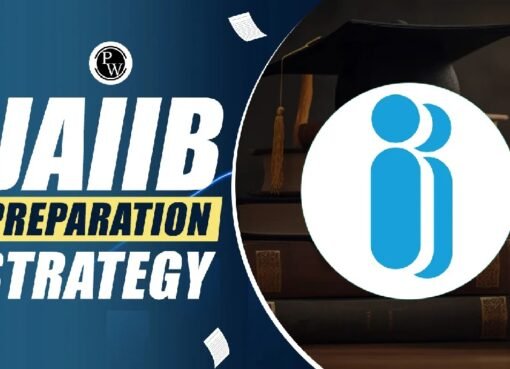The Hidden Gaps in Traditional Math Education: How 7th Grade Math Tutoring Fills the Void

Have you ever felt completely lost in math class? Do numbers and equations sometimes seem confusing, even when the teacher explains them? Many students struggle with math, but it’s not always because they aren’t trying.
Sometimes, the problem isn’t the student—it’s the way math is taught. Traditional math education often leaves gaps, and these gaps can make learning math frustrating. That’s why 7th-grade math tutoring can be a game-changer.
Traditional Teaching Moves Too Fast
In a classroom, teachers have to follow a schedule. They have to cover certain topics within a short time. If students don’t understand a lesson, there’s not always time to go back and explain it again. This means some students fall behind, even if they work hard.
Tutoring allows students to learn at their speed. A tutor can slow down when a student struggles with a topic or speed up when they grasp a concept quickly. This flexibility makes a big difference. When students get extra time to understand difficult lessons, they feel more confident and less stressed.
One-Size-Fits-All Lessons Don’t Work
Every student processes math in different ways. Some grasp concepts through visuals, while others need interactive methods. Classroom teaching often follows a single approach, which may not work for everyone. Seeking help from 7th grade math tutoring can provide personalized strategies to bridge these learning gaps.
Tutors can use different teaching styles based on how a student learns best. They can use visual aids, real-life examples, or even games to make math fun. This kind of personal attention can help students finally understand concepts that once seemed impossible.
Lack of Individual Attention
Each teacher strives to help students, yet the overwhelming number of students in their classes makes it impossible for them to deliver individualized instruction. A student would choose to remain silent instead of voicing their question due to uncomfortable public questioning. Many misunderstandings between students tend to accumulate into more substantial issues.
Students obtain a protected platform through tutoring services to pose their inquiries with assurance. A tutor teaches each concept progressively by confirming complete understanding before advancing the student. Students experience more comfort with risks and mistakes because individual attention builds their willingness to explore math learning.
Building Strong Foundations

Math is like a staircase. Every step in the process depends on mastering the previous stage. Students experience complete math failure when they do not develop basic math skills properly, since the upcoming subjects become extremely difficult. Most algebra students face difficulties due to inadequate mastery of fractions and decimals from their previous grade work.
Through tutoring, students can receive help identifying their knowledge gaps so tutors can repair those weaknesses. The tutor returns to previous lessons before focusing on foundation strengthening. Students become familiar with challenging math concepts once they properly fill in their missing gaps.
Test Anxiety and Low Confidence
Test stress causes students who have problem-solving skills to experience paralysis when taking exams. Students become overcome by anxieties about making errors, which causes their minds to completely shut down during the process. Traditional math instruction emphasizes formula teaching yet it does not provide training for calming down and thinking logically while under time constraints.
Through instruction, tutors assist students to learn acceptable test-taking methods. Students learn from tutors how to analyze test questions along with time management strategies. Work in a stress-free environment across multiple sessions enables students to master test-taking confidence.
Math Feels Boring and Unrelated to Real Life
A common complaint about math is that it feels useless in daily life. Many students don’t see how solving equations or working with fractions will help them in the future. Traditional math lessons don’t always connect concepts to real-world situations, making learning feel dry and uninteresting.
Tutors bring math to life by showing how it applies to everyday activities. They might use cooking to teach fractions, shopping to explain percentages, or sports statistics to make data analysis fun. When students see the real-world value of math, they become more engaged and motivated to learn.
Encouraging a Growth Mindset
Many students believe they are “bad at math” because they struggled in the past. This mindset makes learning even harder. If they think they will fail, they might not even try. Traditional education sometimes reinforces this idea by focusing too much on grades rather than progress.
Tutors help students develop a growth mindset—the belief that skills improve with effort. They encourage students to see mistakes as learning opportunities. With this new way of thinking, students start believing in their ability to grow. Instead of giving up, they push through challenges and become stronger learners.
Preparing for Future Success
Math skills don’t just help in school. They play a big role in careers and everyday life. Whether a student wants to be a scientist, an engineer, or even a business owner, math is essential. Strong math skills also help with budgeting, decision-making, and problem-solving.
Tutoring not only improves grades but also prepares students for the future. It teaches them how to think logically, approach problems with confidence, and stay persistent when things get tough. These skills will benefit them long after they finish school.
Conclusion
Every student has the potential to succeed in math, but traditional education doesn’t always meet their needs. The gaps in classroom learning can make math feel confusing, frustrating, and overwhelming. With the right support, students can fill in those gaps and start seeing math in a new light.
7th-grade math tutoring provides the personalized attention, flexible pacing, and creative teaching methods that many students need. It helps build confidence, reduce anxiety, and make math more enjoyable. When students get the right kind of help, they stop feeling lost and start feeling capable.
With tutoring, math doesn’t have to be a struggle. It can become a subject that students understand, appreciate, and even enjoy. By filling in the gaps left by traditional education, tutoring opens the door to a brighter and more confident future in math.
FAQs
1. Why do some students struggle with 7th-grade math even if they pass earlier grades?
Math concepts build on each other, and small gaps from previous years can make new topics harder to understand. Without a strong foundation, students may struggle even if they did well before.
2. How can tutoring help students who dislike math?
Tutors use fun and engaging methods, like games and real-world examples, to make math more interesting. When students see math differently, they often become more motivated to learn.
3. Can tutoring help if a student is already doing okay in math?
Yes! Even students who are doing well can benefit from tutoring. It can help them deepen their understanding, build confidence, and stay ahead in class.



